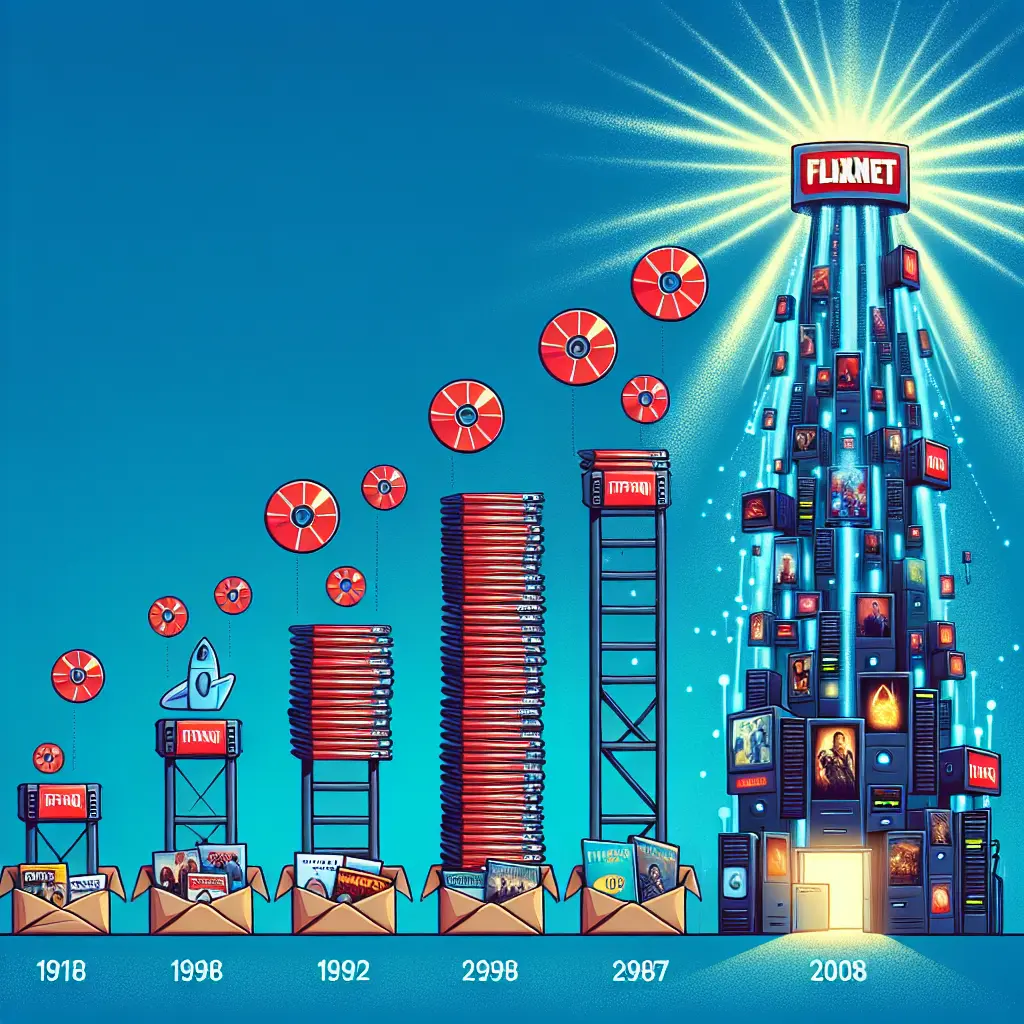
From its humble beginnings as a DVD rental service to becoming a veritable behemoth in the realm of digital streaming, Netflix's journey has been nothing short of revolutionary. This transformation is not just about technological evolution but also reflects a shift in consumer behavior and the entertainment landscape at large. In this comprehensive exploration, we'll delve into the various facets of Netflix's evolution, its strategies, and how it continues to impact the global entertainment industry.
The Early Days and DVD Rental History
Netflix, founded in 1997 by Reed Hastings and Marc Randolph, started as a DVD rental service. This model was innovative in its approach, allowing customers to rent DVDs online and have them mailed directly to their homes, a significant shift from the traditional video rental store model epitomized by Blockbuster. This phase in the company's history is crucial as it set the foundation for what Netflix would become (Source: Netflix Official Site).
The Shift to Streaming
By 2007, Netflix introduced streaming, allowing subscribers to instantly watch television shows and movies on their personal computers. This was a pivotal moment in the DVD rental history, marking the beginning of a content streaming revolution. The Netflix streaming service was among the first to capitalize on the rapid advancements in internet technology and bandwidth capabilities, thereby redefining how people consumed media (Source: Netflix Media Center).
Emergence as a Streaming Giant
The introduction of the Netflix subscription model for streaming, which provided unlimited access to a vast library of digital content at a flat monthly fee, was a game-changer. This model not only fueled Netflix's growth strategy but also played a crucial role in popularizing the concept of video on demand (VOD). Over the years, this approach helped cement Netflix's position as a streaming giant, influencing widespread adoption of online streaming services globally.
Netflix vs Blockbuster: A Case Study
The stark contrast between Netflix's innovative approach and Blockbuster's failure to adapt to digital streaming trends is often highlighted as a classic business case study. While Netflix embraced technology and evolved, Blockbuster failed to foresee the significance of streaming and digital content, ultimately leading to its downfall. This shift is a significant chapter in the entertainment industry transformation (Source: Harvard Business Review).
Innovations in Content and Technology
Netflix's growth strategy has heavily relied on its ability to innovate. Notably, its investment in original content has allowed it to become not just a distributor but also a prominent producer in the entertainment industry. Shows like "Stranger Things" and "The Crown" have received critical acclaim and attracted massive global audiences.
Additionally, recent developments such as hiring a former Epic Games executive as President of Games signal Netflix’s ambition to expand beyond traditional content streaming into interactive and gaming content (Source: Variety).
Legal Controversies and Challenges
As Netflix continues to expand its content library and technological capabilities, it has not been without controversy. Reports of NVIDIA’s AI team scraping YouTube and Netflix videos without permission highlight the complex legalities surrounding digital content and intellectual property rights in the era of AI and machine learning (Source: Reuters).
The Global Market Impact
Netflix's market impact is profound, influencing not only the entertainment industry but also broader digital streaming trends. Its success has prompted numerous companies worldwide to launch or expand their own video on demand services, intensifying competition but also accelerating innovation within the sector.
The Cultural Phenomenon
Netflix has also managed to engrain itself into the cultural zeitgeist. Series like "Arcane" and upcoming projects such as "Terminator Zero" demonstrate Netflix’s influence in shaping pop culture narratives across diverse genres and formats (Source: IGN). Additionally, celebrities like Jenna Ortega hinting at exciting developments in popular series like "Wednesday" Season 2 contribute significantly to ongoing viewer engagement and anticipation (Source: Entertainment Weekly).
Looking Ahead: The Future of Streaming
As we look towards the future, it's evident that cord-cutting trends will persist, pushing more consumers away from traditional cable subscriptions towards flexible, on-demand streaming options. The role of AI and advancements in technology will further define the next wave of innovations in content creation and delivery.
Conclusion
Netflix's journey from a DVD rental service to a leading streaming giant encapsulates a broader narrative about innovation, adaptation, and foresight. The company's ability to continually evolve its business model while reshaping consumer habits and industry standards stands as a testament to its pioneering spirit.
As we continue to witness this exciting era of digital transformation in entertainment, one thing remains clear: Netflix has not just participated in the industry's evolution; it has actively propelled it forward, promising an intriguing chapter ahead for viewers worldwide.
Charlotte Spencer